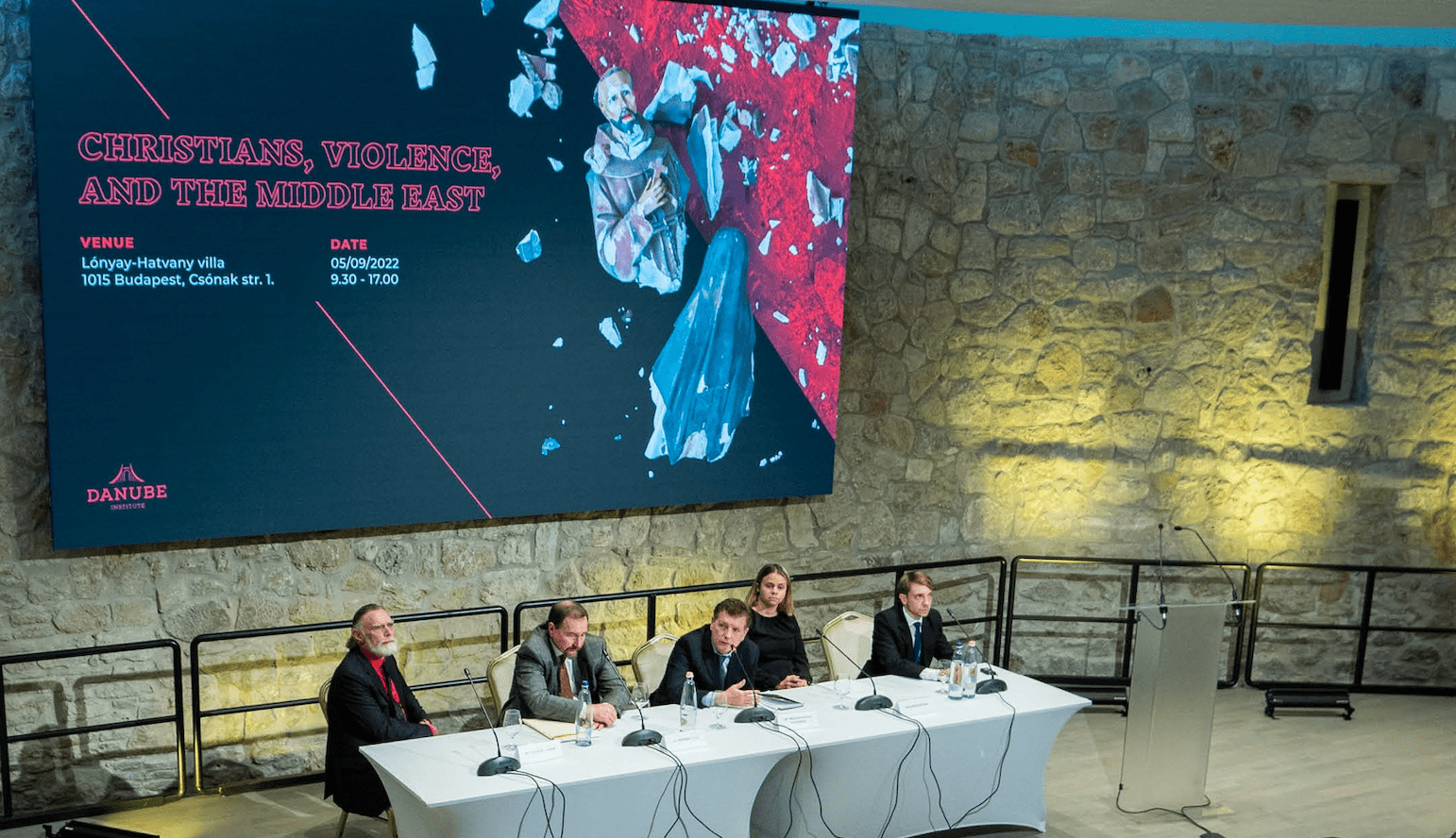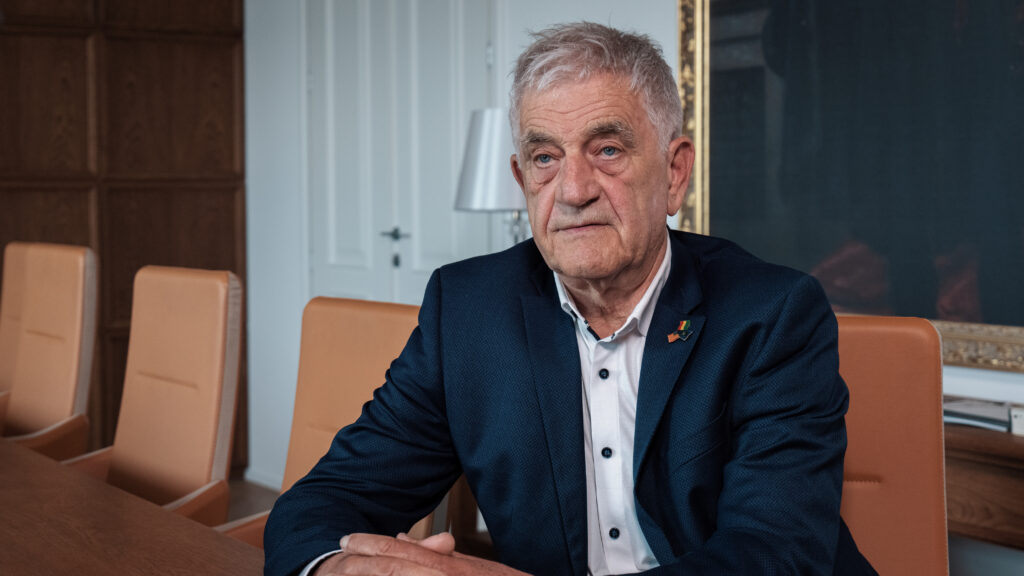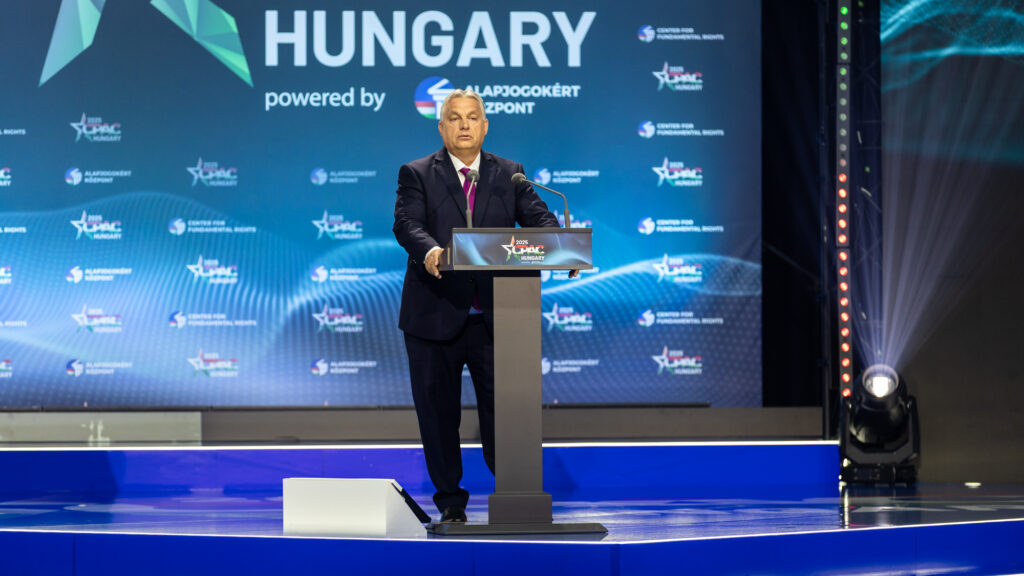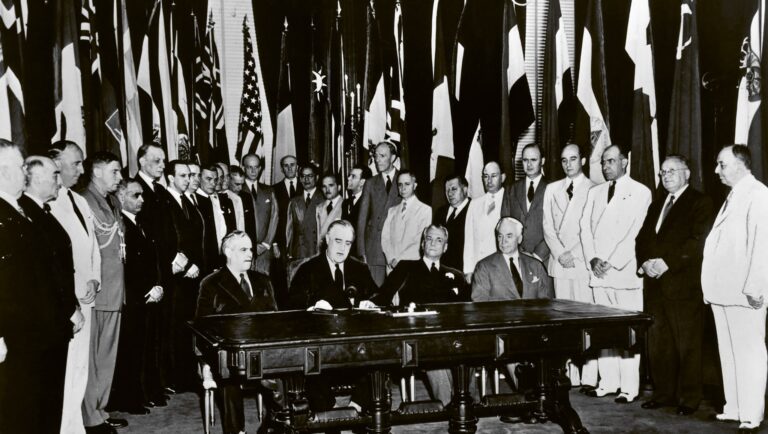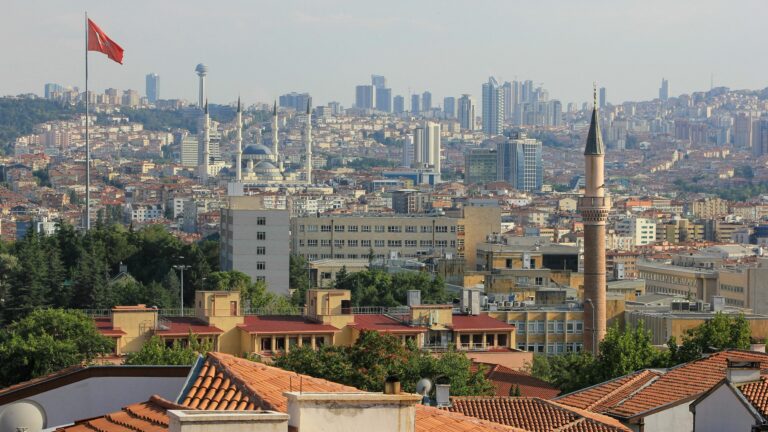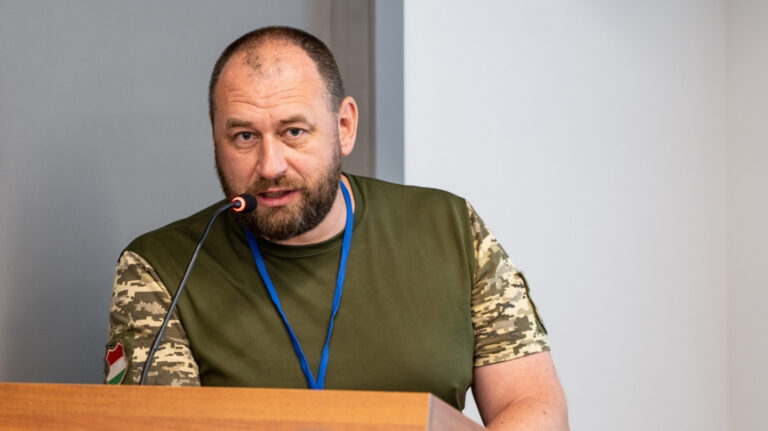On the 5th and 6th of September, the Danube Institute held its second conference in relation to the ongoing research project titled Violence Against Christian Communities and Institutions. The conference featured several distinguished speakers, including Tristan Azbej, State Secretary for the Aid of Persecuted Christians and 2021 Nobel Peace Prize nominee Julianna Taimoorazy. The representatives of partner organisations arrived from all over the world, including Iraq, Syria, Israel, Morocco, the United Arab Emirates, Nigeria, and Sudan.
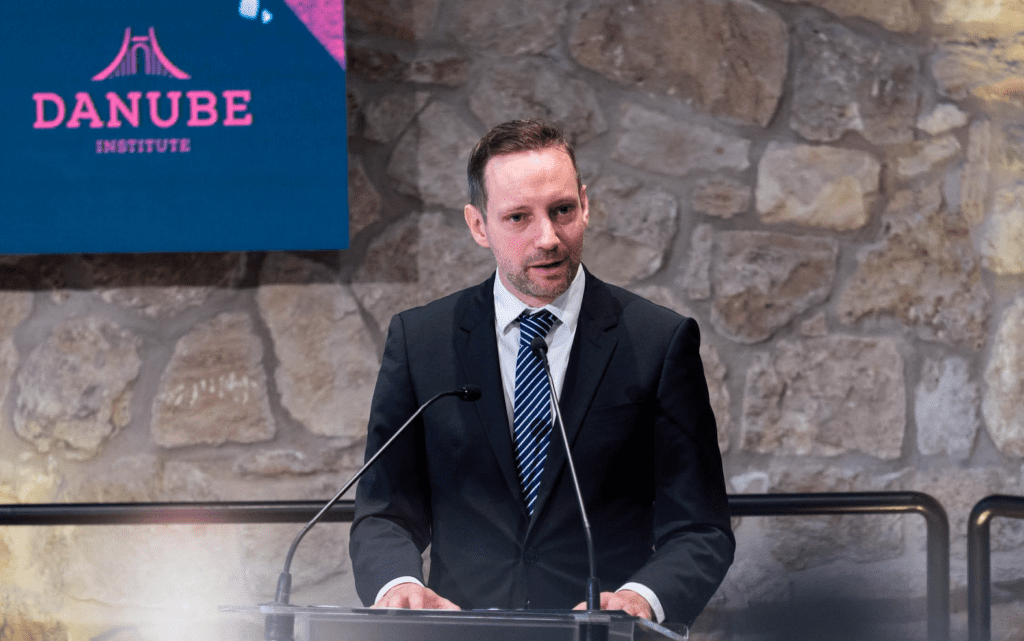
At the beginning of the 21st century, the 2003 Iraqi war, the events of the Arab Spring, and the wave of terror unleashed by the Islamic State awakened the world to the danger that Christian communities are facing. The latest reports on persecuted and oppressed Christians are alarming; the number of victims is constantly increasing. The Middle East is emblematic in this respect, not only because it is the cradle of the three monotheistic world religions, including Christianity, but because it is the region that has seen both peaceful coexistence between faith groups and religious violence throughout its history.
The conference’s first panel discussed the role of governments and NGOs in humanitarian aid projects, focusing on persecuted Christian communities in the Middle East. Based on his experience in Iraq, Stephen M. Rasche, Senior Fellow for International Religious Freedom in Conflict Regions, emphasised the importance of adapting the ‘Hungarian aid model’, referring to the work of the Hungary Helps Program, which delivers aid directly to the local people, who can spend it entirely on what they truly need. This model works because Hungary respects the locals and trusts them to rebuild their own cities. However, as Péter Kovács-Pifka, Director General of the Hungary Helps Agency added, this model relies on the trustable locals, but it is often difficult to choose whom to trust.
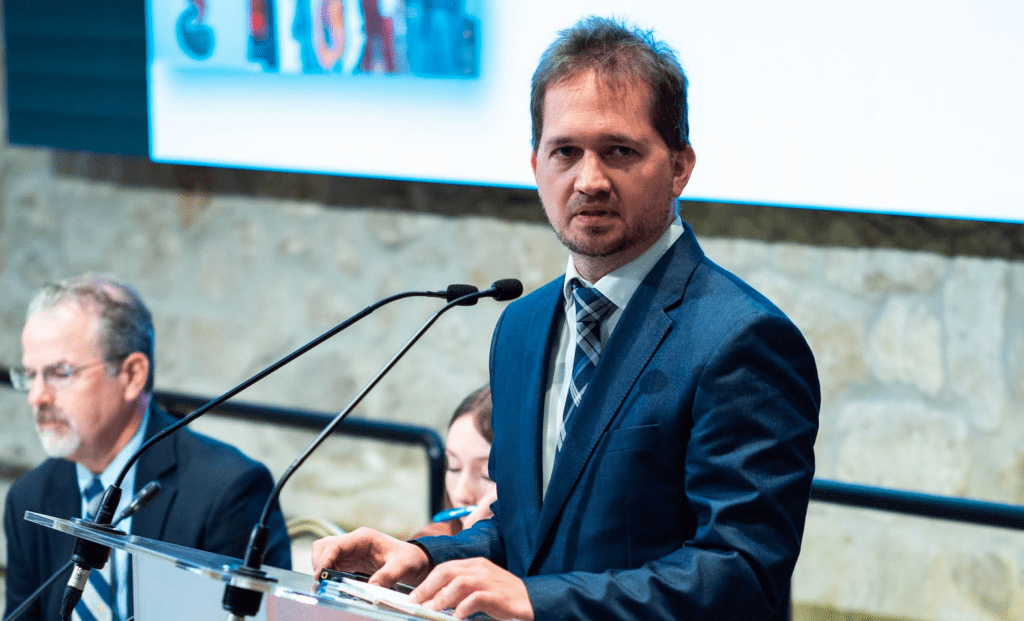
As violence and suffering have no religion, the second panel dealt with the broader context of religious violence in the Middle East. Intolerance and persecution do not only affect Christians but can also be directed against Muslims, Jews, or Yazidis, to give just a few examples. Several measures have been taken by governmental and non-governmental actors in the Middle Eastern region to counter religious violence. Dr Kristian Patrick Alexander, Director of governmental and non-governmental actors International Security & Terrorism Program at TRENDS, highlighted the successful attempts to institutionalise tolerance in the United Arab Emirates, including establishing the Ministry of Tolerance in 2016. However, regarding the countermeasures to religious violence, promoting tolerance is only one piece of the puzzle; there are other important areas to consider as well.
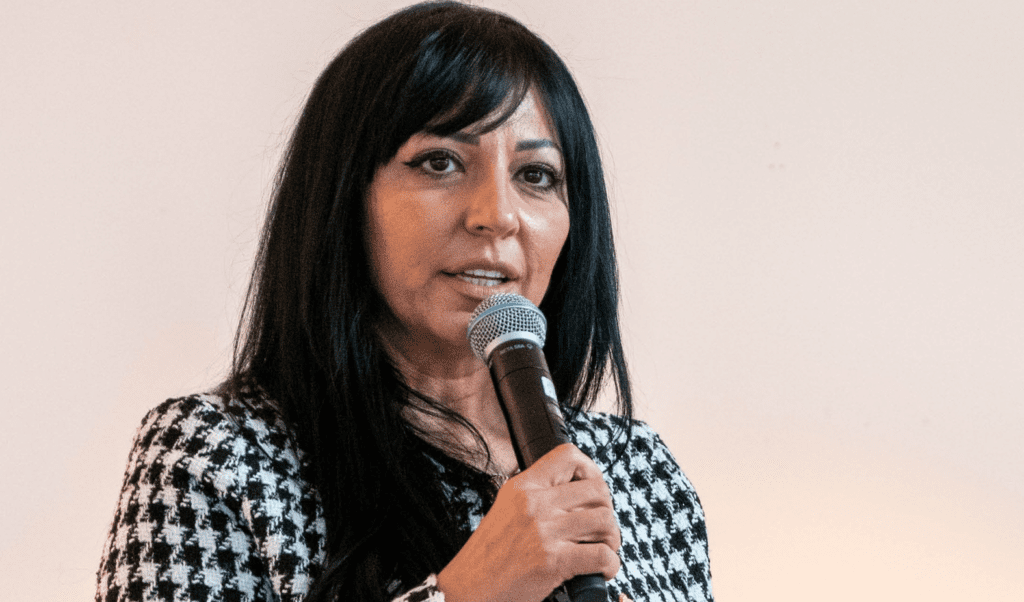
Professor Jeffrey Kaplan, Senior Distinguished Fellow at the Danube Institute, spoke about the Institute’s ongoing research project, the initiative that inspired the conference. The fieldwork-based research project, looking into the situation of Christian communities that face discrimination and violence, aims to avoid the politicisation of the topic, a rather common practice with other researchers and NGOs. The Danube Institute’s project will instead be based on reliable local sources. The study will be conducted over a 2-year span, and its success depends on intensive training, considerable cooperation with other research centres, NGOs, universities and governments, and extensive collaboration with local stakeholders to get a complete picture. Everybody has a story and wants to tell it, Jeffrey Kaplan remarked; the project therefore aims to listen to these stories and, by analysing the different perspectives, get a broader view and understanding of the topic. It is of utmost importance to deal with violence against Christians and have the courage to publish the research results, as today’s victims can be future perpetrators, Professor Kaplan highlighted.
The conference’s closing remarks were delivered by Julianna Taimoorazy, founder of the Iraqi Christian Relief Council and a Nobel Peace Prize nominee in 2021. After leaving Iraq as a refugee, she became an unshakeable voice for Christians in the Middle East today. In her remarks, she spoke about the importance of sharing the message of the plight of Middle Eastern Christians, and to articulate their desire for religious freedom and their right to live in a pluralistic society.

